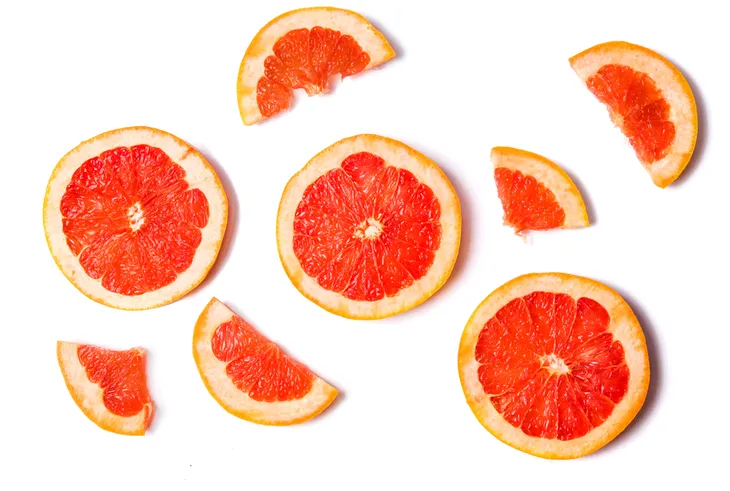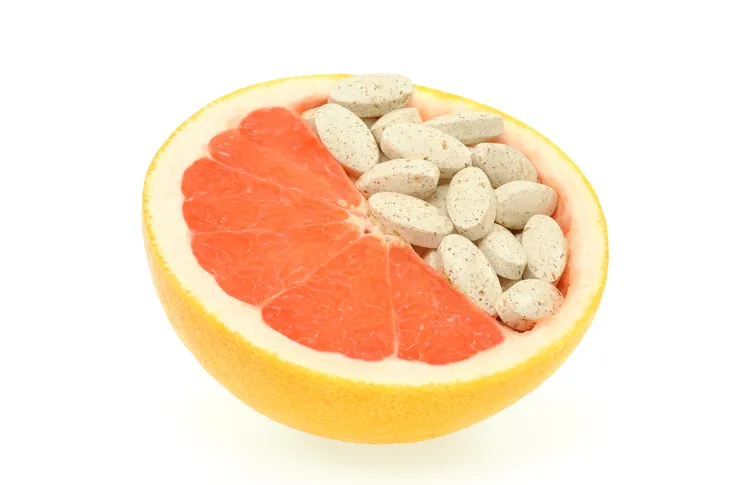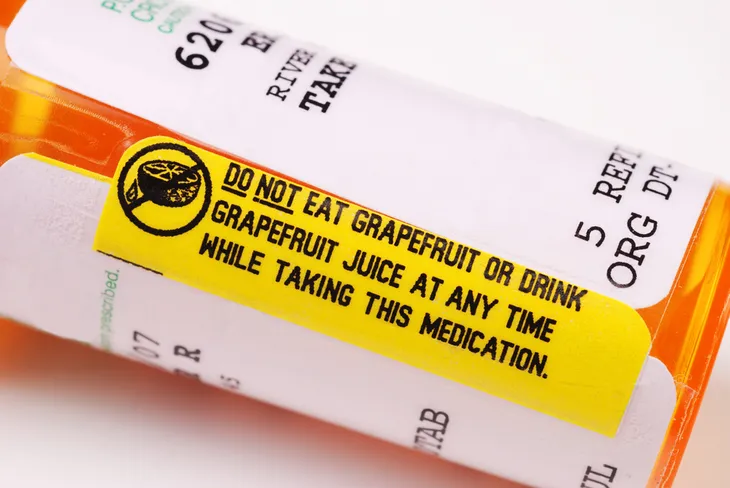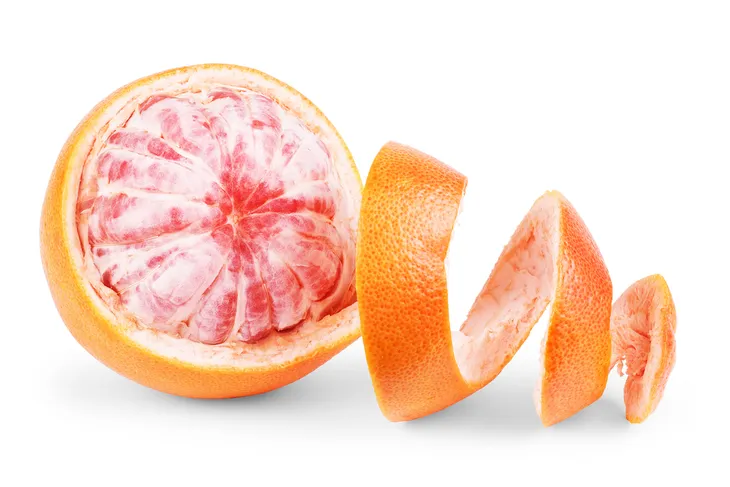The grapefruit was created in the 18th century by crossing an orange with a pomelo. The result was a fruit that grew in clusters similar to grapes, hence the name grapefruit. Most people think of grapefruit as a healthy, delicious, and nutritious part of their diet. After all this large citrus fruit is packed full of vitamin C. In fact eating one half of a grapefruit will provide you with approximately 63-percent of your daily requirement of vitamin C and only 52-calories.
Grapefruit is an excellent source of disease fighting antioxidants such as lycopene and beta-carotene. The fruit also contains minerals such as manganese, zinc and copper as well as phytonutrients, which promote health. Possible health benefits of grapefruit include weight loss, decreased risk of stroke, cancer, asthma, high blood pressure, and clearer skin.
Despite all these potential health benefits people need to be cautious when consuming this supposed ‘super fruit’ because grapefruit can be harmful to your health in the following ways…
Grapefruit Can Contribute to Kidney Failure
Although some scientific research has found that grapefruit may reduce the incidence of kidney stones due to its acidic properties, other research has shown grapefruit can be harmful to those with pre-existing renal disease. This is because grapefruits contain large amounts of potassium.
Excess potassium can be harmful if your kidneys are already compromised in their functioning. The kidneys are supposed to filter excess minerals from your blood. Hyperkalemia results when high levels of potassium collect in the blood and your kidneys are unable to remove it. Severe hyperkalemia can lead to cardiac arrest and death. Therefore, if you have renal disease you should be cautious of including excessive amounts of grapefruit in your diet.
Grapefruit Can Worsen GERD Symptoms
It is estimated that as many as 40-percent of the population is affected by GERD (gastroesophageal reflux disease). This condition is commonly associated with heartburn and indigestion. Research has established a link between this disease and excessive acid in people’s diets. Grapefruit contains a large amount of citric acid.
For those who have GERD, eating grapefruit may result in an increase of symptoms, especially heartburn. Medication alone does not resolve symptoms. This is because when your stomach refluxes, a stomach enzyme called pepsin also increases and rises. Pepsin is not affected by anti-reflux medication. Therefore, if you have or are prone to GERD, you may need to minimize or eliminate grapefruit from your diet.
Grapefruit Can Reduce the Absorption of Certain Drugs
Grapefruit is a dietary staple for many. One fifth of Canadians consume grapefruit or grapefruit juice at breakfast, which also coincides with the time of day most medications are taken. What most people don’t realize is that grapefruit contains substances that interfere with the transport of certain drugs within the body. They do this by attaching to the receptor sites specific to these drugs thereby preventing the transportation of these drugs into the cells.
This results in significantly less of the drug being absorbed and minimizes or eliminates the drug’s effectiveness altogether. One of the drugs affected is fexofenadine (brand name Allegra). This drug is available both as a prescription and over the counter. It is commonly prescribed for the relief of environmental allergies. In addition to grapefruit, other juices such as apple and orange may also decrease the effectiveness of this drug.
Grapefruit Negatively Interacts with Most Medications
Grapefruit interacts with more medications than any other known substance. At last count grapefruit was implicated in adverse reactions with 85 different drugs and that number continues to climb. Staggering the time between grapefruit or grapefruit juice consumption and medication consumption does not help.
Grapefruit stays in your system for upwards of 24-hours once ingested and for that entire time will interact with medications. People aged 45 and older buy the most grapefruit and the most medications. This number increases with age. Older adults have more medical problems than younger people leaving them even more vulnerable to the adverse effects of drug interactions with grapefruit.
Grapefruit Can Be Deadly
Of the 85 known drugs that grapefruit interacts negatively with, 43 can have serious adverse reactions. Side effects may include kidney failure, respiratory failure, gastrointestinal bleeding, and sudden death. This is because grapefruit substantially increases the potency of most drugs. Pharmacologist, David Baily, estimates that “taking one tablet with a glass of grapefruit juice is like taking 20 tablets with a glass of water.”
This increased potency results in unintentionally high and toxic levels of a drug in a person’s bloodstream and can lead to complications resulting in death. Furanocoumarins such as bergamottin found in grapefruit juice are thought to be responsible for this hazardous side effect. These compounds block the small intestine enzyme (CYP3A4) that assists in the metabolism and breaking down of medications.
Drugs that Interact with Grapefruit
Grapefruit can cause serious adverse reactions with cholesterol drugs (statins), anti-histamines, blood pressure drugs (calcium channel blockers), psychiatric medications, intestinal medications, immunosuppressants, pain medications, Viagra, HIV medications, and cardiac medications to name a few.
When taking any of these medications the best advice would be to exclude grapefruit or grapefruit juice from your diet and consult your pharmacist or family doctor to double check for negative interactions.









